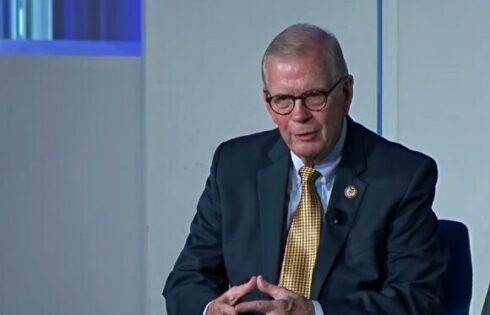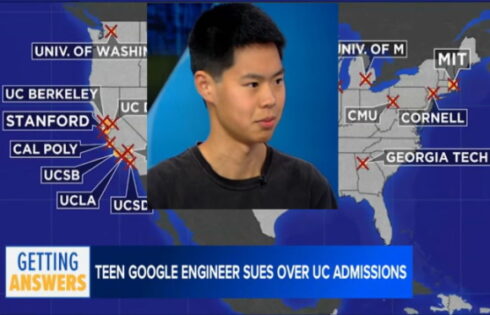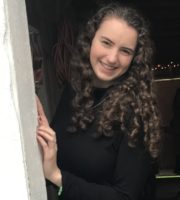
Practice is legal in 10 states for patients deemed terminally ill
Physician-prescribed suicide, referred to by proponents as “medical aid in dying,” is legal in ten states and the District of Columbia, but major medical associations are not providing answers about how doctors are trained in the practice.
More than a dozen other states are considering similar legislation this year to allow doctors to provide life-ending medication to terminally ill adults who have six months or less to live and request it. But none of the medical groups contacted by The Fix were willing to answer questions about training regarding the controversial practice.
The American Medical Association opposes the practice, stating in its code of ethics, “euthanasia is fundamentally incompatible with the physician’s role as healer, would be difficult or impossible to control, and would pose serious societal risks.”
“Euthanasia could readily be extended to incompetent patients and other vulnerable populations,” its position states.
However, AMA did not respond to multiple requests for comment from The College Fix by phone and its media contact form. Questions included how doctors are trained to perform physician-prescribed suicide in the states where it is legal, if medical schools teach it and if there are any restrictions on medical schools teaching it.
The Association of American Medical Colleges, which oversees the accreditation of medical schools, referred The Fix to the American Academy of Hospice and Palliative Medicine and National Hospice and Palliative Care Organization when contacted for comment in recent email.
In a follow-up asking if AAMC has an official position on the issue, a spokesperson told The Fix it does not.
National Hospice and Palliative Care Organization spokesperson Elyssa Katz told The Fix in a June email its position supporting “medical aid in dying,” adopted in 2021, is “the most up to date comment from NHPCO.”
When asked about training, Katz recommended The Fix contact the AAMC and Compassion & Choices, a MAID advocacy organization, saying they “may be able to offer topical expertise.”
American Academy of Hospice and Palliative Medicine also declined to comment when contacted by The Fix.
Charles Camosy, a professor of medical humanities at the Creighton University School of Medicine, a private Catholic institution, told The Fix medical groups’ reluctance to speak about the issue likely has to do with its “tremendous controversy.”
He said disability rights activist have been very effective “at calling out medicine for its ableist and eugenic past.”
“[B]ut it is also because it is quite clear that once killing a single patient … becomes ‘health care’ the term has no meaning at all and health care simply becomes ‘Burger King’ where every customer ‘gets in their way’ and the professional and vocational nature of medicine completely collapses,” Camosy told The Fix in an email this week.
Advocacy groups, new ‘medical aid in dying’ academy offer training
Compassion & Choices, the leading advocacy group for MAID in the U.S., did provide some answers to The Fix.
Spokesman Sean Crowley said medical aid in dying “is the correct, accurate and appropriate term for this end-of-life care option,” not assisted suicide or euthanasia.
Such terms “demonize carefully considered legislation that allows qualified mentally capable, terminally ill adults to obtain a doctor’s prescription for medication they may decide to take to peacefully end their suffering if it becomes unbearable,” Crowley said in a recent email.
Others never take the medication but “get great palliative relief from having it on hand if they need it,” he said.
Asked how doctors are trained in MAID, Crowley told The Fix: “Physicians utilize numerous methods to learn how to provide medical aid in dying to patients with incurable, terminal illnesses who want this option if their end-of-life suffering becomes intolerable, even with the best hospice care available.”
“Opportunities to learn about this medical practice include, but are not limited to, the curriculum in medical school, residency and fellowship programs, education provided at national conferences, mentorship with colleagues, such as Compassion & Choices Doc2Doc resource, peer-reviewed journals, and clinician resources provided by professional organizations,” Crowley told The Fix via email.
One link goes to a 2022 webinar offered by the California Academy of Family Physicians, titled “Incorporating a medical aid in dying curriculum into resident education.” The lead presenter was Dr. Ryan Spielvogel, a family physician and faculty at the Sutter Family Medicine Residency Program in Sacramento, California.
The 2023 National Clinicians Conference on Medical Aid to the Dying also offered a series of “Continuing Education Objectives” for healthcare providers in attendance, including nurses, physicians, and social workers.
These included “incorporat[ing] into their practices that aid in dying is about caring for patients, not writing prescriptions, utiliz[ing] in their practices the understanding that patients do not come to them requesting aid in dying, but rather considering aid in dying, and understand[ing] that fatigue is a very common but little-discussed reason a patient moves forward with aid in dying.”
Crowley with Compassion & Choices told The Fix the American Academy of Family Physicians advocates for education regarding the practice, too. He said physicians associated with the academy are the ones “most likely to prescribe medical aid in dying to longtime patients.”
Additionally, the American Clinicians Academy on Medical Aid in Dying is a relatively new group that “grew from the remarkably successful 2020 National Clinicians Conference on Medical Aid in Dying at UC Berkeley, and the 2023 National Clinicians Conference on Medical Aid in Dying, in Portland, Oregon,” according to its website.
Its mission involves “informing and educating clinicians about medical aid in dying,” including “clinical discussions,” “evidence-based knowledge,” “nursing care, “medical ethics,” and “pharmacology.”
The academy did not respond to two emailed requests for comment from The Fix.
Medical community doesn’t like oversight: professor
The lack of information and willingness to discuss the matter also could have to do with the medical community’s avoidance of oversight, Camosy at Creighton University told The Fix.
“There is a very strong sense that no one who is not a trained clinician ought to have anything to say about what clinicians do. … Trust doctors, right? Everyone else just butt out. I’m not sure how they think they can get away with this approach after the COVID pandemic, but here we are,” he said.
Camosy, a well-known Catholic bioethics author who frequently writes about healthcare, assisted suicide, and euthanasia, said “physician-assisted killing” also takes place by “stealth.”
“While it is of course totally legitimate to forego life-sustaining treatment for a proportionately serious reason where the patient’s death is foreseen but unintended, that’s often not what is going on in cases like this,” he told The Fix.
“Often the goal is to kill the patient or aim at their death to come more quickly. But it is almost always done … on the down-low,” using terms like “palliative care” or “keeping the patient comfortable,” he said.
Camosy told The Fix he isn’t surprised “that the practices and approaches to [physician-assisted killing] would also be hidden away from public view.”
“It is not something the medical community is proud of and it is also not something over which they want any public scrutiny or oversight,” he said.
Editor’s note: Assistant editor Micaiah Bilger contributed to the report.
MORE: American Medical Association stays opposed to assisted suicide
IMAGE: Tyler Olson/Shutterstock
Like The College Fix on Facebook / Follow us on Twitter






Please join the conversation about our stories on Facebook, Twitter, Instagram, Reddit, MeWe, Rumble, Gab, Minds and Gettr.